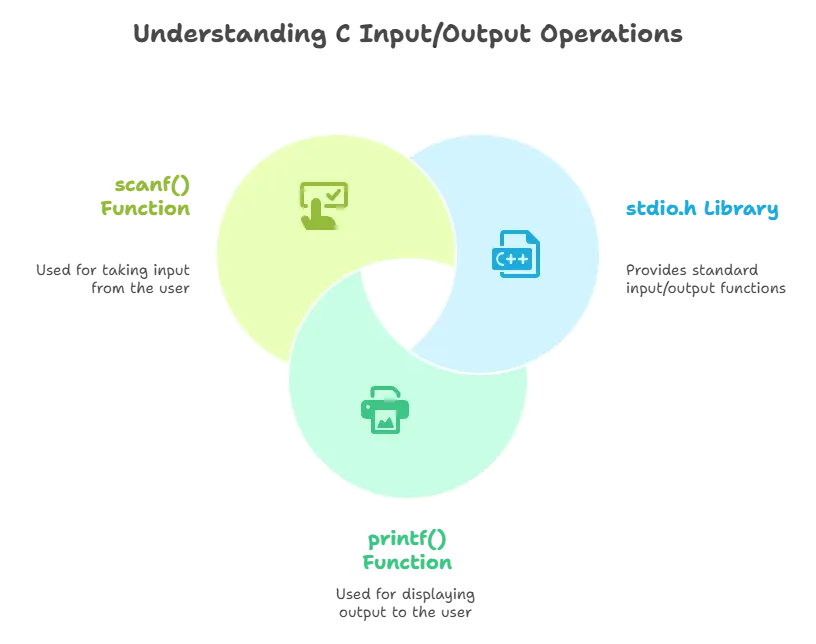Interacting with the OS
In the world of programming, especially in the C language, interacting with the operating system (OS) is crucial. Operating systems like Windows, Linux, or macOS provide interfaces for programs to communicate with hardware and manage resources. In this chapter, we will delve into how C programs can interact with the OS, covering basic concepts to advanced techniques.
C provides standard libraries like <stdio.h> for input and output operations. Functions like printf() and scanf() are commonly used for displaying output and taking input from the user respectively.
#include <stdio.h>
int main() {
int num;
printf("Enter a number: ");
scanf("%d", &num);
printf("You entered: %d\n", num);
return 0;
}
// output //
Enter a number: 10
You entered: 10

File Handling in C
C allows manipulation of files through standard I/O functions. You can create, read, write, and delete files using functions like fopen(), fclose(), fread(), fwrite(), etc.
#include <stdio.h>
int main() {
FILE *file;
file = fopen("example.txt", "w");
if (file != NULL) {
fprintf(file, "Hello, World!\n");
fclose(file);
}
return 0;
}
// output //
(example.txt is created with content "Hello, World!")
Command Line Arguments
C programs can accept command-line arguments when executed. The main() function can take arguments argc (argument count) and argv (argument vector).
#include <stdio.h>
int main(int argc, char *argv[]) {
printf("Number of arguments: %d\n", argc);
for (int i = 0; i < argc; i++) {
printf("Argument %d: %s\n", i, argv[i]);
}
return 0;
}
// output //
$ ./a.out arg1 arg2
Number of arguments: 3
Argument 0: ./a.out
Argument 1: arg1
Argument 2: arg2
System Calls
System calls allow direct interaction with the OS kernel. C provides functions like fork(), exec(), wait(), etc., for process management.
#include <stdio.h>
#include <unistd.h>
int main() {
pid_t pid = fork();
if (pid == 0) {
printf("Child Process\n");
} else if (pid > 0) {
printf("Parent Process\n");
} else {
perror("fork() failed");
}
return 0;
}
// output //
Parent Process
Child Process
Interprocess Communication (IPC)
IPC mechanisms allow communication between processes. C supports methods like pipes, shared memory, and message queues for IPC.
// Example of using pipes for IPC
#include <stdio.h>
#include <unistd.h>
int main() {
int fd[2];
pipe(fd);
pid_t pid = fork();
if (pid == 0) {
// Child Process
close(fd[0]); // Close reading end
write(fd[1], "Hello from Child", 16);
close(fd[1]);
} else if (pid > 0) {
// Parent Process
close(fd[1]); // Close writing end
char buf[30];
read(fd[0], buf, 30);
printf("Message from Child: %s\n", buf);
close(fd[0]);
} else {
perror("fork() failed");
}
return 0;
}
// output //
Message from Child: Hello from Child
In this chapter, we've explored various aspects of interacting with the operating system in C. From basic input/output operations to advanced techniques like system calls and IPC mechanisms, understanding these concepts is essential for developing efficient and robust C programs. By mastering these techniques, you can harness the full potential of the C language in building powerful and scalable applications. As you continue your journey in C programming, remember to practice and experiment with these concepts to deepen your understanding and proficiency.Happy coding!❤️
